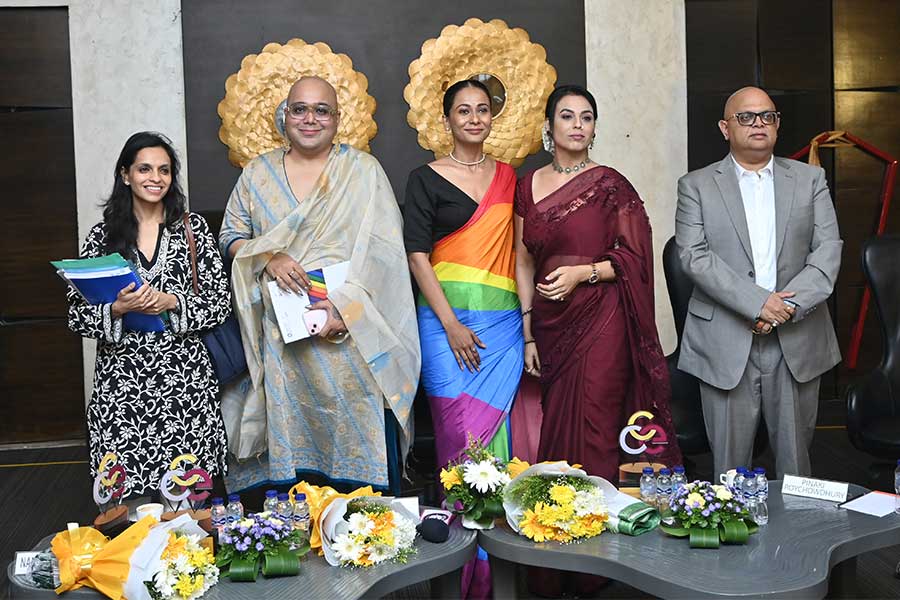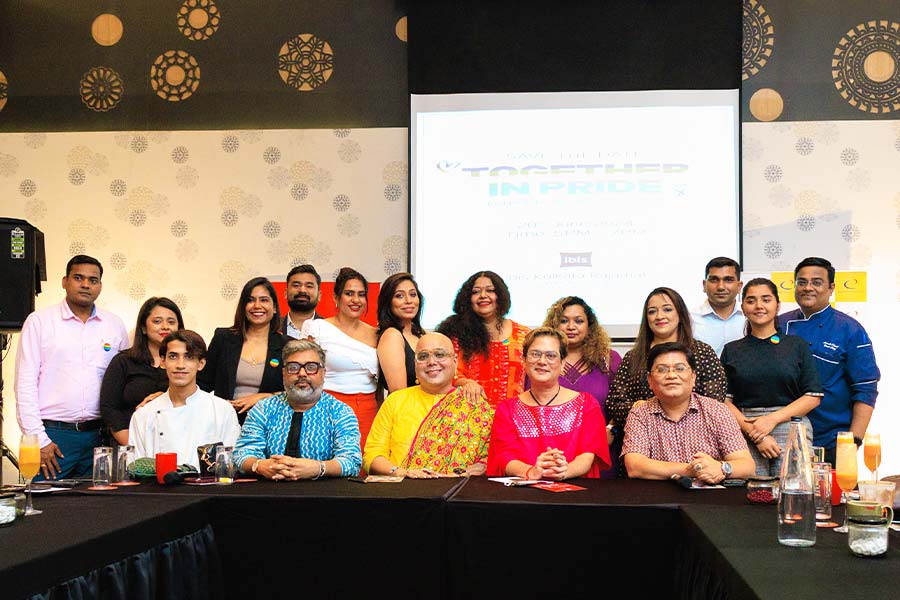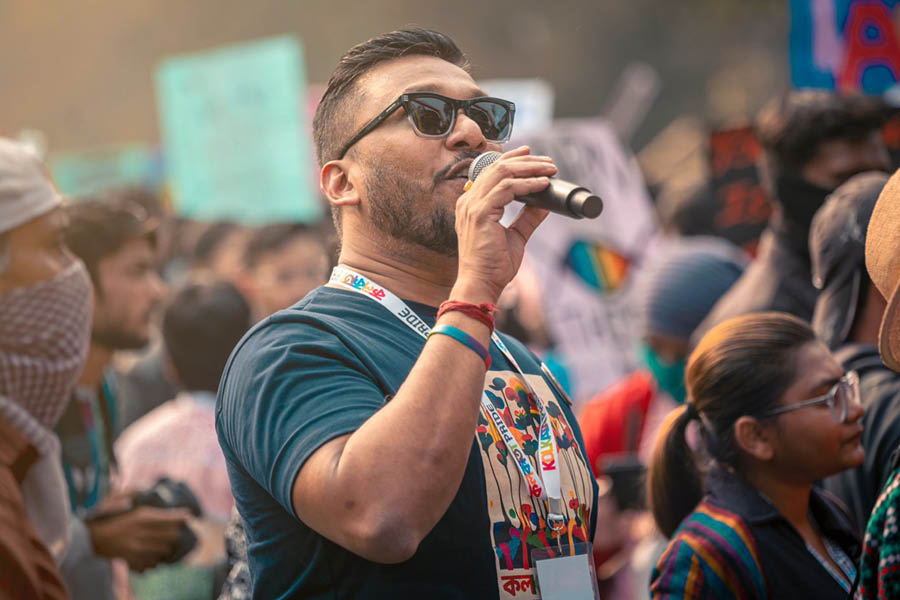In the past few decades, the term ‘pride’ has become synonymous with people of alternate sexual orientations and gender identities claiming their space and reclaiming their voice. In order to understand issues faced by the LGBTQIA+ community, Credo Center of Excellence organised a panel discussion on the topic, ‘Proud to Take Pride in Ourselves’ on July 4 at Aauris Hotel in Robinson Street. My Kolkata brings you the excerpts.
The panel comprised eminent achievers from the queer community and proud allies. The speakers were fashion designer and pageant coach, Indroneel Mukherjee; actor and founder of Troyee Foundation, Shree Ghatak; lawyer Nandini Khaitan; and Credo’s founder-trustee, Pinaki Roychowdhury. The discussion was moderated by actor and model, Ushoshi Sengupta.
Seeking acceptance
Ushoshi started the session by asking Indroneel about the tribulations of coming out in a corporate setup during his youth. He confessed that he always knew that he was different from his other male friends, and was picked on a lot at school, but never let it affect him. It was economic independence that made him truly embrace himself. “These were the days when Article 377 was very much a thing. I had heard horrific stories of children being kicked out of homes after coming out to their parents. Luckily, my family and friends accepted me just the way I am. It is appalling when parents forget their children’s emotions, but think about what society will say,” he said.
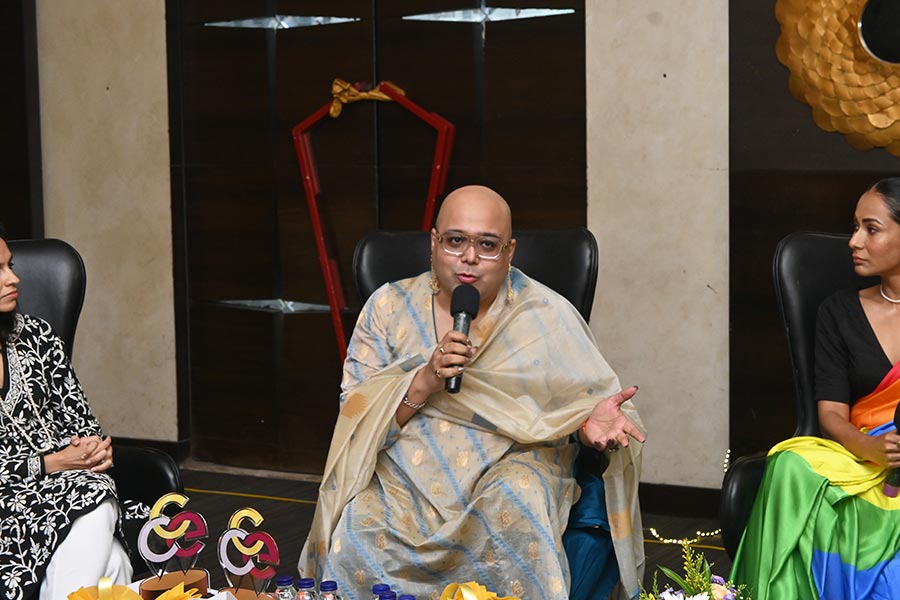
While Indroneel found acceptance at home, he confessed that most of his contemporaries weren’t so lucky
Shree also shared her own trans-experience and experiences with familial hostility. She spoke about how society draws sharp boundaries around what boys and girls cannot do, drawing upon her own experiences of having a harsh father who objected to her dancing. “My father once threw my ghunghroos and musical cassettes from the fourth floor, because he felt that dance was making his son a woman. Parents often don’t realise how hard they are being on children, and all we can do is try to be there for our kids when we become parents. Life has taught me so many lessons that you can make a film about me,” she said.
Nandini shared the legal perspective behind the recent proposal to legalise same-sex marriage. She explained how Regina Guha was denied a lawyer licence by the Calcutta High Court in 1916, and how we are now on track to get the first female Chief Justice of India. “Change may be slow, but it is happening. While the same-sex marriage petition wasn’t approved, transgenders in a heterosexual relationship can marry. Same sex couples now have the right to live together under the protection of law without being harassed. They will also be given protection from domestic violence. It isn’t a lot, but it is something,” she said.
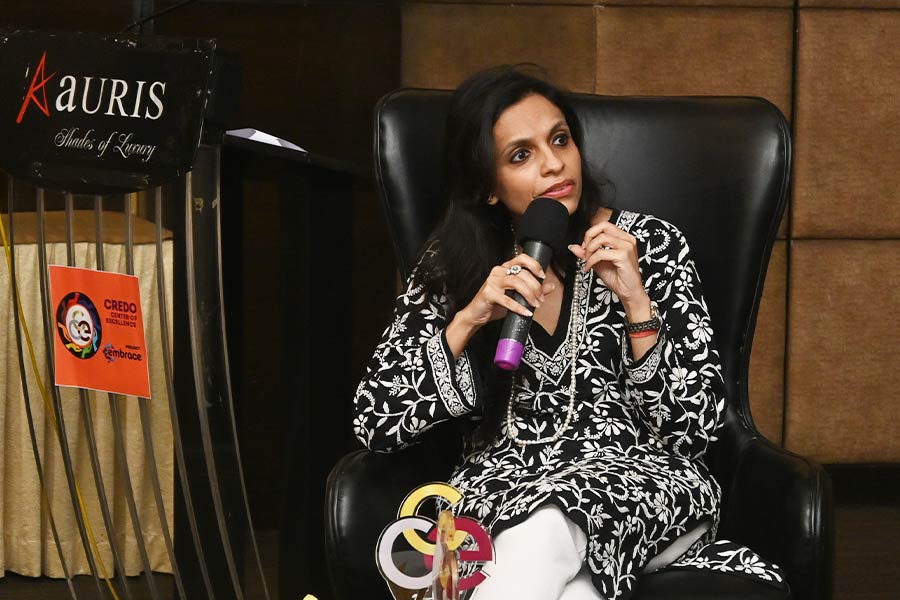
Nandini requested the community to hold on to hope, despite progress often being too slow to see
Recourse through employment
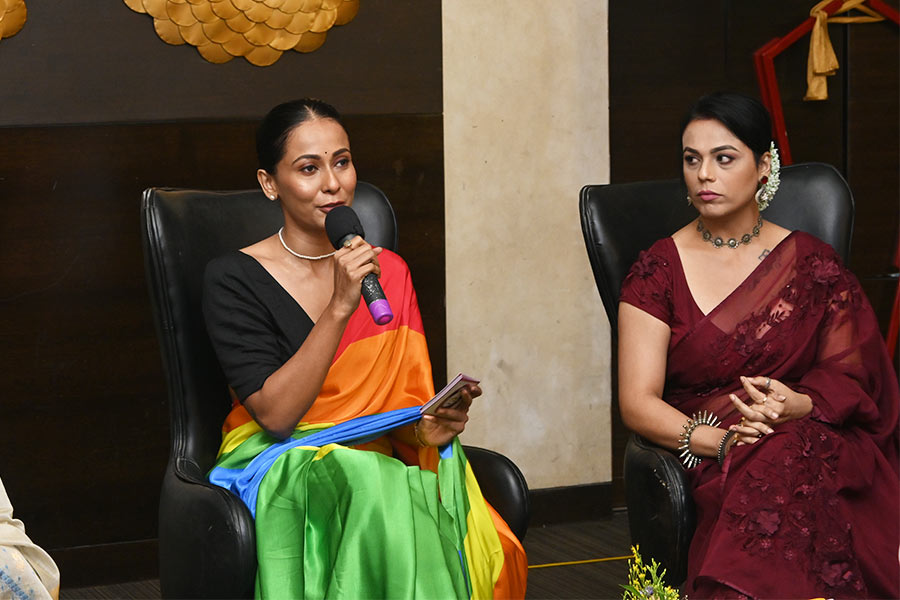
Ushoshi (left) emphasised that while laws helped, it is economic opportunity and employment that can truly empower the community
Ushoshi also emphasised that while laws helped, only economic opportunity and employment would truly empower the community. “We need people from the community in leadership positions to look up to,” she said. Pinaki added that financial independence was paramount to acceptance, putting forth Indroneel’s example. “Only a successful person is heard by society. You may be a lovely person and very talented, but unfortunately, it is money that talks. The LGBTQIA+ community is special, because they don’t just have talent, but a strong connection to their emotions too, making them different from the rest,” said Pinkai. He also shared how Credo is creating incubation centres with empowerment systems for people across the queer spectrum battling poverty. The focus is on generating employment. “If a family has a problem with their child dancing, the organisation can sponsor her art and provide her with art. Once the individual is successful, she will automatically gain empowerment,” he added.
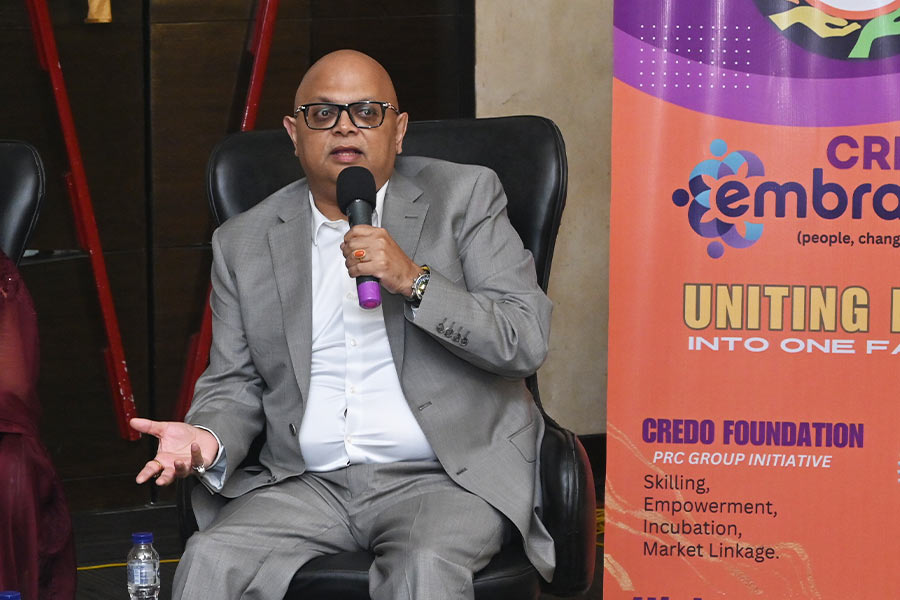
Pinaki stressed on the importance of financial independence for the LGBTQIA+ community
At this point, Ushoshi shared how she met Indroneel as a 17-year-old college student, and his role in pushing her to become a model. “He not only helped me start my career as an emcee, but also helped me make my first CV, and invoices,” she smiled, adding that it was a transformational moment in her journey as an ally.
Nandini further stressed on employment, explaining how her firm, Khaitan & Co. has a strong diversity and inclusion wing. “In 2022, we realised that there was a problem regarding access to information, and created a compendium. It talks about all the information about the community’s rights, from adoption to marriage, in simple English. Access to information is the first step to exercising a choice,” she said.
Sensitisation and awareness
Pinaki argued that a change in law doesn’t necessarily translate into a change in mindset, reinforcing the need for education. “The only way we can move forward is if schools and colleges make gender studies a part of their syllabus. If we can fight for animal rights, why not fight for humans? There is something wrong with us if we can’t be allies,” he said.
Indroneel also asked the audience to educate themselves on the difference between gender identity and sexual orientation. “Ask people their pronouns before you address them. We all have Google in our pockets, so I’d urge you to read up on it,” he said, adding that while people tend to be accepting of him, but secretly don’t want their kids to be queer. “Acceptance has to go beyond this. I sometimes enjoy hanging out with my friends’ children more than my friends, because they are far more sensitive.”
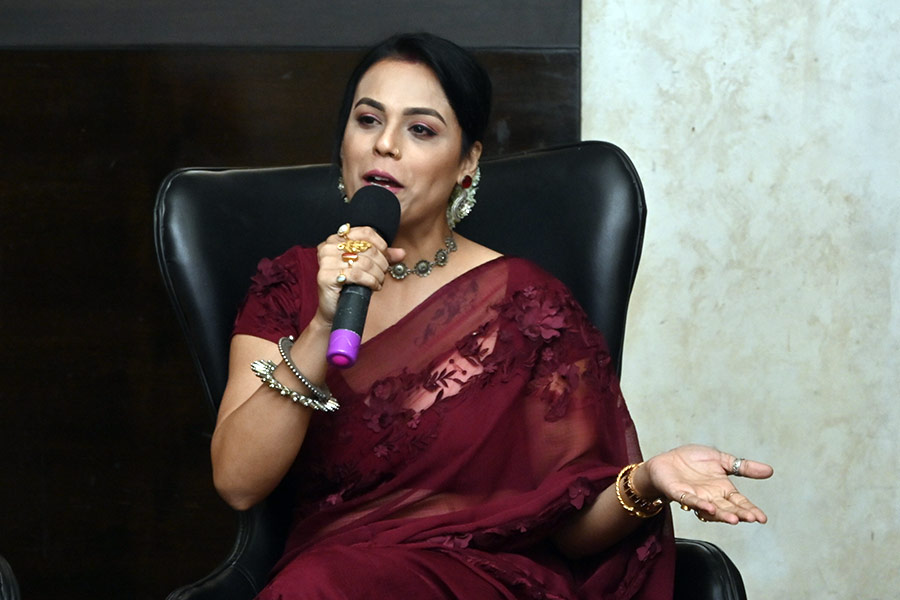
Shree argued that the day she was seen as an actress, instead of a ‘trans actress’, equality would have arrived
Shree recounted her disturbing story of being humiliated in court where she had filed an affidavit to legalise same-sex marriage. “I wanted to use a washroom and asked the guard where I could go. He promptly locked both the male and female washrooms. My husband cut a water bottle in half, and I had to do my business while standing in a lift. I feel ashamed to live in a society where this could have happened inside a court,” she said.
For Shree, this harassment is what had prompted her to start her NGO. Having run across offices for years just to make an Aadhaar Card, she noticed that a lot of transpeople face problems around filing paperwork and finding non-judgemental doctors. “I started Troyee with the mindset to provide people with the support that I never got, but really wanted,” she explained.
Ushoshi ended the session by lauding the courage of every panellist, with a renewed resolve to be a better ally, “I've been an ally for years. Most of the big moments of my life have been influenced by some of my best friends from the community.”
